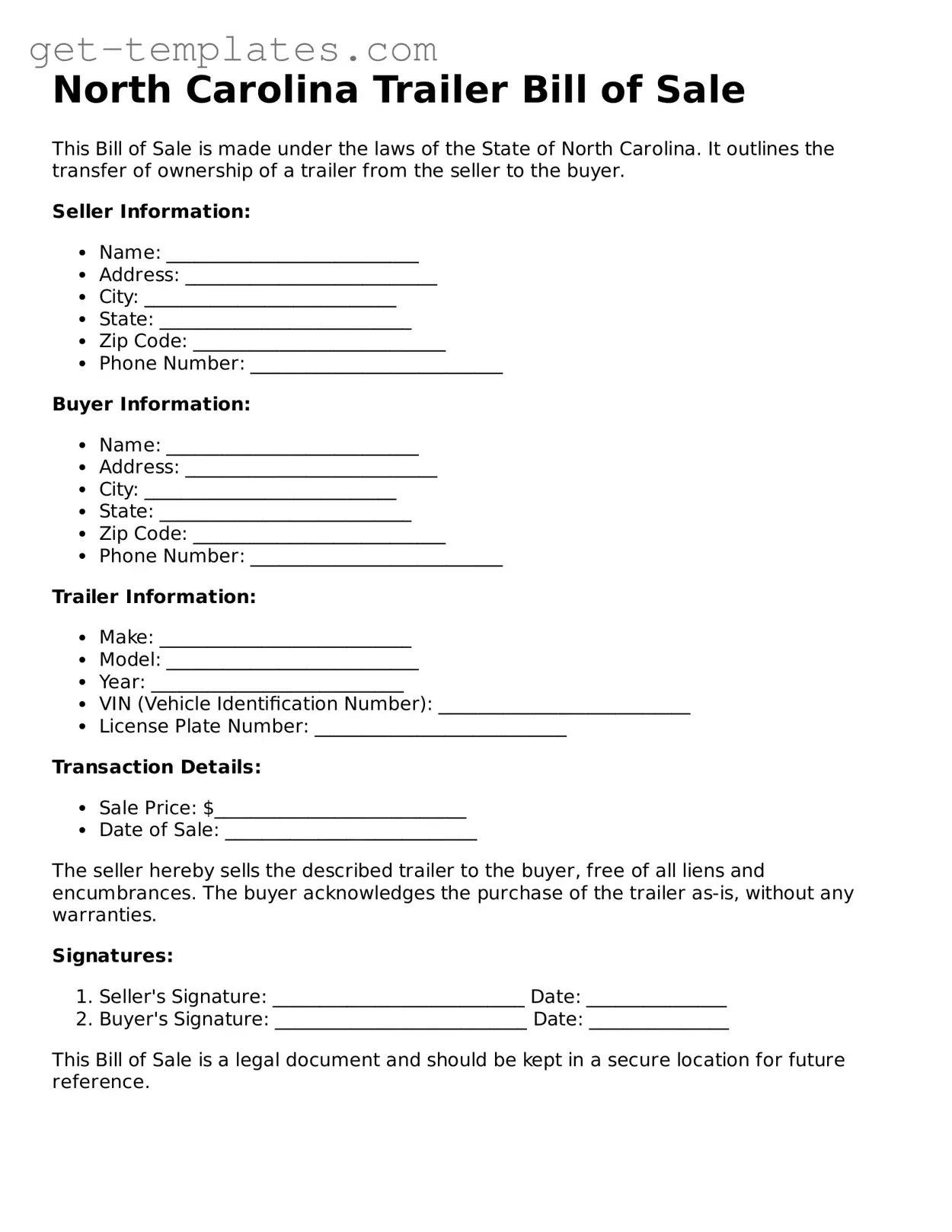Attorney-Approved Trailer Bill of Sale Document for North Carolina
The North Carolina Trailer Bill of Sale form is a crucial document used to record the sale and transfer of ownership of a trailer. This form serves as proof of the transaction between the buyer and seller, detailing important information such as the trailer's identification, sale price, and the parties involved. Understanding this form is essential for ensuring a smooth transfer process and protecting both parties' interests.
Get Document Online

Attorney-Approved Trailer Bill of Sale Document for North Carolina
Get Document Online
You’re halfway through — finish the form
Finish Trailer Bill of Sale online — edit, save, download made easy.
Get Document Online
or
⇓ PDF Form
